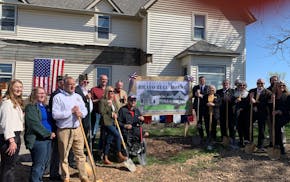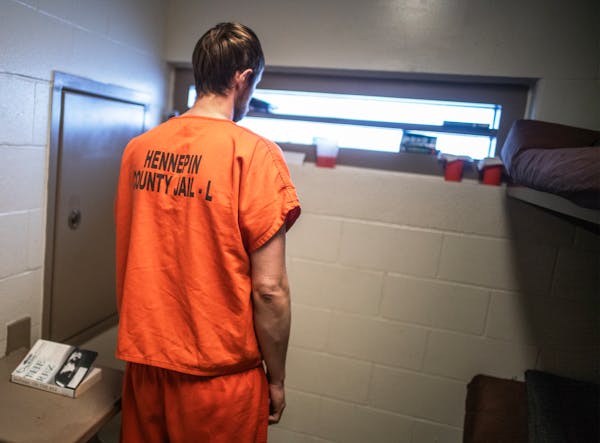Partying and drug use in college sent Matt Reuvers to treatment, not once but twice. "It was a downward spiral from my freshman year to my fifth freshman year," he said.
When he left Hazelden the second time, Reuvers knew conventional college life was too fraught with temptation. So he transferred to Augsburg University's StepUP, a program and residential hall exclusively for students in addiction recovery.
"I knew that was the only way for me to go back to school. I needed an environment that was conducive to recovery," said Reuvers, who graduated last spring with a marketing degree and is now a manager in corporate sales.
He's one of more than 750 Augsburg students who have relied on StepUP to navigate college. A gala Saturday will help raise money for the program, including the goal of building its $6 million endowment to $10 million.
Founded in 1997 at the urging of two students in recovery, StepUP was one of the first programs of its kind in the country. Today, it's the largest residential recovery program on a U.S. campus, with space for 106 students.
Augsburg since has added a Recovery Advancement program to help other colleges establish their own StepUP-modeled programs.
Toby Piper LaBelle, a StepUP co-founder and Augsburg alumnus, credits the university with having the courage to welcome and nurture students in recovery two decades ago, at a time when others saw a sober dorm as too risky or bad for their image.
"It's the Lutheran tradition. Augsburg was willing to do this," said LaBelle, who sits on the college's Board of Regents. "The faculty and administration said, 'It's the right thing to do.' The university has been steadfast in its support."
Today there are about a dozen residential recovery programs at colleges across the country. St. Cloud State University started its own residential-based recovery community, based partly on Augsburg's, in 2012 — the first of its kind at a public university in the Upper Midwest, said program coordinator Thaddeus Rybka.
"Collegiate recovery is a growing movement across the country," Rybka said. "It allows students coming out of treatment to have that continuing support. Any college environment is hostile for recovery. Providing that safe, welcoming environment allows them to thrive and be their best selves."
The rise of such programs parallels an evolution in the recovery community, said LaBelle, a senior vice president at Northland Capital Markets. "We are doing interventions earlier and trying to help younger addicts sooner," he said.
It also reflects a greater understanding that addiction does not discriminate, said Reuvers, who is in recovery from prescription drug and heroin addiction.
"There is a stigma around it, but it happens to normal kids from the suburbs. It's not just the homeless guy on the corner," said Reuvers, 28, originally from Maple Grove. "When I tell people, they don't believe it. … I am proud of what I have overcome and how far I've come."
Zero tolerance
LaBelle said it's the individual success stories that keep the Augsburg program vibrant. In the past five years, StepUP students have maintained grade-point averages of 3.0 or higher. More than 93 percent stayed on the path of recovery while enrolled in the program.
Students in StepUP pay the same tuition, room and board as other students. Fundraising helps to cover the additional $600,000 needed each year for staff counselors, an admissions person and other operating costs.
To participate in the program and live in the residence hall, students must be sober for at least six months. They regularly meet with licensed drug and alcohol counselors employed by StepUP.
If a StepUP student starts using drugs or alcohol again, they can remain enrolled at Augsburg but must leave the sober dorm. LaBelle said the zero-tolerance policy is essential to maintaining the community's integrity.
"The environment needs to be safe first," he said.
StepUP counselor Kristin Wilcox said that many students speak of social anxieties and their hopes to find and maintain a network of friends while avoiding alcohol and drugs.
"What continues to delight me is the resilience these students bring, not only to their lives but to their college journeys," Wilcox said.
The program hosts events and outings; new initiatives include an art group, a women's group and peer recovery coaches. "One of the things we teach them is how to have sober fun," LaBelle said.
For Reuvers, StepUP represented a shot at a normal life.
"It gave me a second chance and the opportunity to succeed in life," he said. "It's definitely the only way I could have gone back to school. I couldn't be more grateful for it."
Shannon Prather • 612-673-4804

Overdose deaths spike after incarceration, but Minnesota jails lack treatment

New sober house for veterans in southern Minnesota wants to treat the real issue: PTSD
Two North Loop condos combined into one 'dreamy' space listed for $649,900

